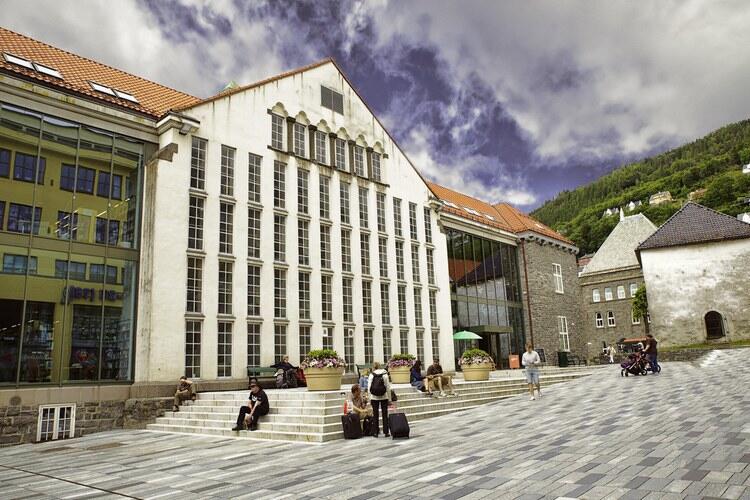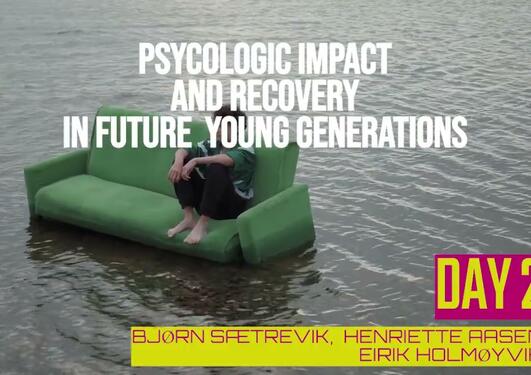Long-Term Consequences of the COVID-19 Pandemic for Society
The Pandemic Centre invites to its third conference with the title "Long-Term Consequences of the COVID-19 Pandemic for Society" on the 27th of October 2023 in Bergen, Norway.
Long term consequences of the COVID-19 pandemic for society
Main content
REGISTER HERE FOR THE CONFERENCE: https://form.app.uib.no/Pandemic23
The Pandemic Centre presents a one-day international conference on the long-term consequences of the COVID-19 pandemic and lessons learned. Join us as we explore the enduring impacts of the pandemic on various aspects of life and discuss ways to improve preparedness in its aftermath.
This conference will provide an excellent platform to share and discuss research findings on the societal impacts of the pandemic and next steps to be taken for future preparedness.Topics include the historical perspective of pandemics, necessary changes post-pandemic, implementation of lessons learned, and applying these lessons to other global crises.
The conference is open to a broad audience including students, researchers, policy makers, organizations, local media and everyone interested in the long term-effects of the pandemic.
Program (9:00-16:00)
Mingling and coffee available from 8:30
Welcome and introduction: Prof. Margareth Hagen (UiB rector) and Prof. Esperanza Diaz (director Pandemic Centre)
Keynote: “Lesson learnt from COVID-19 for better preparedness for long health crisis” Sylvie Briand, Director of the Pandemic and Epidemic diseases Department, WHO Director of the Global Infectious Hazard Preparedness (GIH), WHO Emergency Preparedness (WPE) at the WHO
Keynote: "What can we learn from the end of a pandemic?", Prof. Erica Charters, Professor of the Global History of Medicine, University of Oxford, UK
Elevator pitches: Why and how to keep learning form the pandemic? Part 1 Moderator: Pierina Benavente (Pandemic Centre)
Coffee and posters
Parallel sessions
12:00 - 13:00 Lunch
Parallel sessions
Coffee and posters
Elevator pitches: Why and how to keep learning form the pandemic? Part 2 Moderator: Pierina Benavente (Pandemic Centre)
Plenary Session: Lessons of the day and a view on Lessons learnt but not implemented: is there still time to improve?
- Siri Hauge, Policy officer in DG HERA - Health Emergency Preparedness and Response Authority, European Commission
- Kyrre Kausrud, Norwegian Veterinary Institute, Department of Epidemiology
- Atle Fretheim, Centre for Epidemic Interventions Research, Norwegian Institute of Public Health
- Moderator: Esperanza Diaz, Head of Pandemic Centre, University of Bergen
Closing remarks, Prof. Esperanza Diaz
KEY-NOTE SPEAKERS
MD, PhD, MPH Sylvie Briand
“Lesson learnt from COVID-19 for better preparedness for long health crisis"
Dr Sylvie Briand, MD, PhD, MPH is Director of the Epidemic and Pandemic Preparedness and Prevention department (EPP) at the World Health Organization’s (WHO) headquarters in Geneva, Switzerland. EPP develops global strategies to prevent and control epidemics and pandemics such as COVID 19, monkeypox, Zika, Influenza and several other emerging pathogens with pandemic potential.
She has been at the fore front of managing acute infectious risks to global health for more than 20 years, including accidental and deliberate events, ensuring the development of global mechanisms and sustainable frameworks to facilitate multi sectoral and multi-partners coordination for epidemics and pandemics.
Find her full resume here.

KEY-NOTE SPEAKER Dr. Erica Charters
"What can we learn from the end of a pandemic?"
Erica Charters, Professor of the Global History of Medicine, University of Oxford, UK
Find her full resume here.


